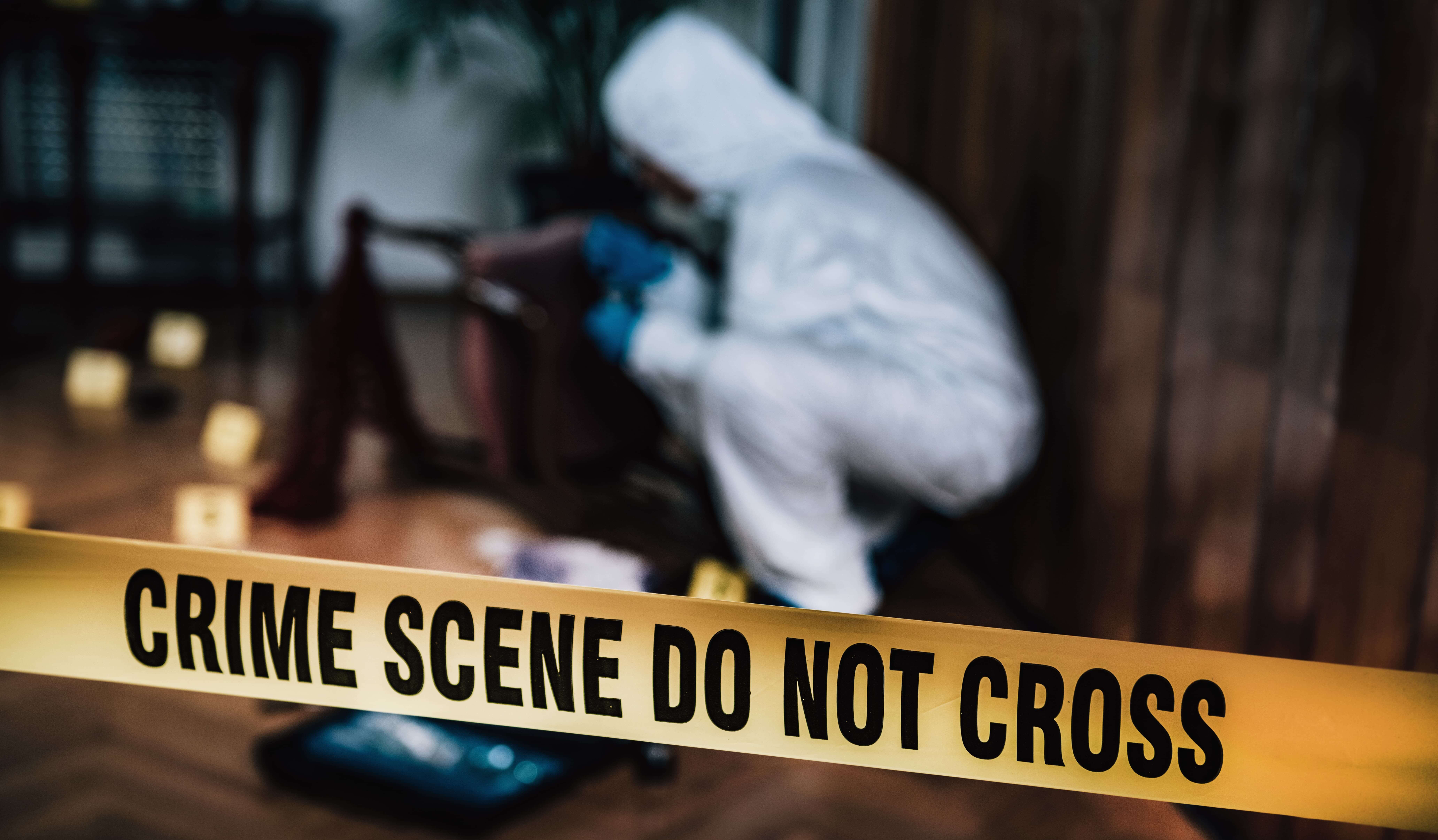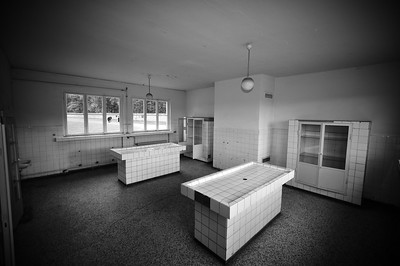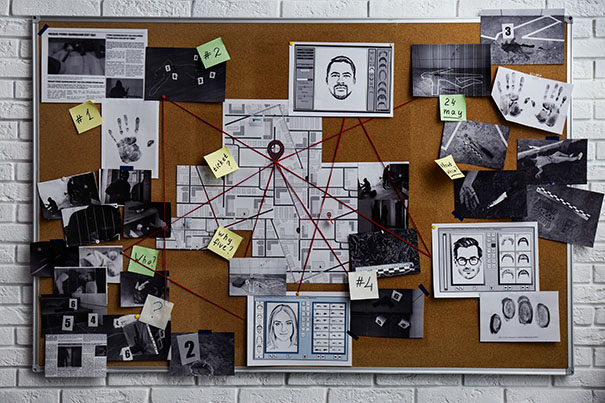Crime Scene Investigator: Before the Cleanup

Popular television shows like CSI, Dexter, NCIS and Law & Order have popularized crime scene investigation (CSI) to the point that it has become the career choice for more people than ever.
Here at National Crime Scene Cleanup our duties come after the investigation, but we see the delicate and often unnerving work these folks do for a living every day and we applaud them for it. It has also given us some pretty unique insights into the ins and outs of working as a crime scene investigator.
Crime Scene Investigator Jobs are Not Like TV
Professional organizations in the field, like the International Crime Scene Investigators Association (ICSIA), want job seekers to realize that CSI jobs are not exactly like what you see on TV. And the job market is quite competitive, regardless of what many Universities might have you believe.
In fact, there are currently about 18,000 police departments in the US today, and only about 16,400 crime scene investigator jobs. Obviously, not every police department has a CSI, though some of the largest metropolitan forces have quite a few.
Crime Scene Investigation as a Career
Could crime scene investigation be a good career choice for you? It’s a very broad field, and can tend to be not exactly easy to get into in many states. But if you enjoy the sciences and criminal law, and have an utterly iron stomach, then it may be the perfect choice for you.
Regarding the iron stomach, we cannot stress this enough. Our teams of crime scene cleaners can speak from personal experience on the sites. We’re not only talking about deaths by gunshot wounds that violent gang members have inflicted on one another, or unattended death situations of little old ladies who have lived a long full life.
You will experience some of the worst crimes you can fathom, and even some you cannot. Crimes involving suicides, large amounts of blood and biohazards, and terrible acts that have taken place in cars.
CSI professionals have to face the absolute worst results from the lowest forms of human behavior every day. We won’t get too much further into graphic detail, but it can get bad.
After they face the initial shock of a brutal crime scene, Crime scene investigators have to be alert and focused while on the job. They must be meticulous while collecting evidence, and be careful not to contaminate or alter the crime scene itself. Furthermore, they are expected to handle blood, body matter, and potentially infectious bodily fluids professionally and efficiently, without so much as a shudder.
The CSI Field
As per the ICSIA, jobs in the CSI field can come under a variety of names, but most have similar end goals; to preserve the crime scene, and figure out exactly what transpired. Generally, CSIs can be broken down into more specific roles such as:
- Evidence Technicians (ET)
- Crime Scene Technicians (CST)
- Forensic Investigators (FI)
- Scenes of Crime Officers (SOCO)
- Crime Scene Analysts (CSA)
- Criminalistics Officers (CO)
Breaking it down even further, there are even more specialized titles within the field, including:
- Forensic Photographers
- Forensic Sketch Artists
- Ballistics Specialists
- DNA Experts
- Fingerprint Experts
The Job Outlook
Roughly 16,000 Crime Scene Investigation professionals are working in our nation today per the US Bureau of Labor Statistics (BLS). During the next ten years the field is expected to grow by about 2,400 jobs. BLS notes that 14% job growth is much faster than usual, but competition for those jobs will be fierce.
- Forensic science technicians will earn $58,000 yearly on average (about $28 bucks an hour) here in the US.
How To Get Into the Field
Future crime scene investigators need to have a minimum of a Bachelor’s degree in a related science field like chemistry, biology, or a specialized forensic sciences degree.
Other Important Skills
Imagine it… stepping into a horrific crime scene, you need to suit up in PPE, get samples, get photos, document evidence into a nearby laptop and get out quickly so that evidence can get processed and sent to lab, and crime scene cleanup crews can start their portion of the job ASAP.
Forensic scientists need to:
- work well with others
- understand and obey superiors
- perform well in very stressful situations
- be proficient with various types of technology
Do I need to be a cop first?
The short answer is no. While it is true that CSI professionals are often hired from within a police department, it is not a requirement.
Back in the early days of this field, forensic scientists were usually hired strictly from within the force. But technological advancement has lead to more specialized equipment and education needed to use it, so nowadays a science related degree can be even more relevant than police field work.
Risks, Injuries, and Morbidity
CSI work is a little risky when compared to a desk job at a cubicle farm. Even with that, it’s not quite as risky of a career choice as many other fields, including police work. Crime scene investigation professionals are typically not in great danger of injury, like an oilfield worker might be, but they do work with bio-hazardous materials daily, and run the risk of accidental infection.
Career Burnout: A Different Kind of Risk
Work as a crime scene investigator, crime scene cleaner, coroner and mortician all have duties in their job descriptions that are somewhat… unsavory.
Without getting into too much gory detail, we’ll just say workers in the death and crime industry get to face a whole lot of unlucky sights, and smells. It’s the nature of the business, and it’s one of the many reasons these professionals earn good wages and our respect.
Yet these sorts of positions can also bring on real depression for many. It’s hard to deal with messy trauma and death, day after day, year after year.
We think the ICSIA says it best “Crime Scene work is very demanding, most CSI’s do not process crime scenes all their careers. They will at some point “burn out” and change their career to perhaps working in the crime lab as a forensic scientist.” So plan on getting an education that can be used in multiple laboratory situations if possible.
Our Role at National Crime Scene Cleanup
CSIs work alongside coroners and other police officers and county staff at the site of deadly crimes. Human remains are photographed, measured and identified if possible, before being loaded up on the gurney and heading to the coroner’s office. Once the remains are gone, CSIs continue to measure, detail and document all the crime scene.
However, once the final crime scene investigator on site completes their duties, the aftermath of the event is left for everyday people to deal with. This is where National Crime Scene Cleanup steps in.
Our certified cleanup teams begin the job of thoroughly inspecting and sanitizing a crime scene as soon as we arrive; time is always of the essence in situations such as these. Our goal is to make the process as smooth as possible for our customers. We know they’ve just experienced a shock, and are possibly mourning.
Our staff is available 24-hours a day. Contact us to speak with a live representative right now if you are in need of assistance. We’ll be there to help.



